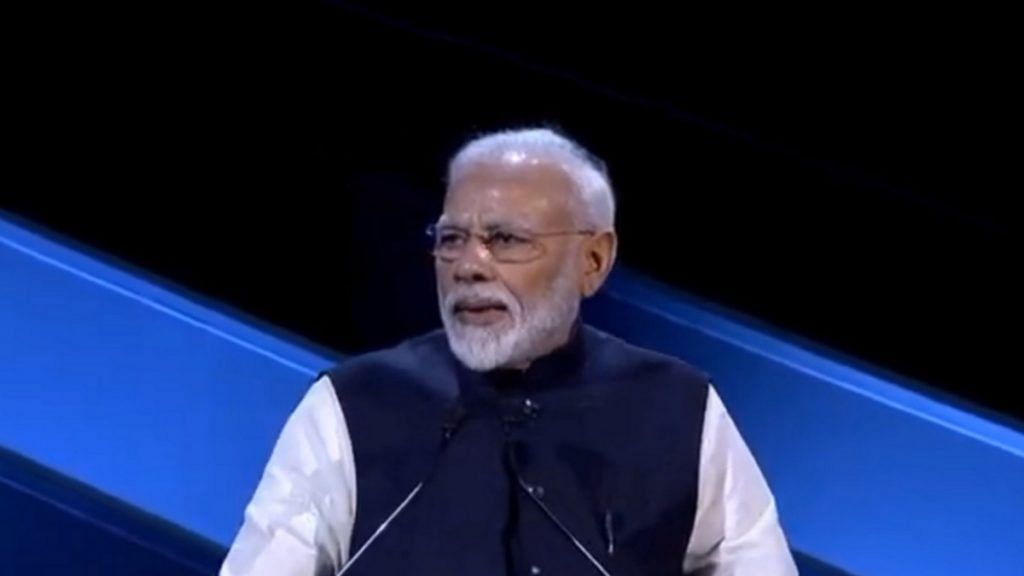Coronavirus fear is real. So much so that Prime Minister Narendra Modi had to cancel his Holi Milan programme. Home Minister Amit Shah followed and tweeted that he too is not going to participate in this year’s Holi gatherings. And yet there is no Hindu outrage and whataboutery about Bakr-id.
How I wish Narendra Modi and Amit Shah had said no fire-crackers for Diwali to combat Delhi air pollution.
Like him or hate him, but you cannot deny that India’s prime minister is a trendsetter. With over 50 million followers on Twitter, Modi has the honour of being part of the hallowed list of most followed politicians across the world. Much of his ‘lahar’ is visible on social media — millions added the prefix ‘chowkidar’ to their Twitter names last year after the prime minister did the same, in response to the Congress’ ‘chowkidar chor hai’ campaign against him. Modi followers get upset when the PM talks about giving up social media (even if it’s a Woman’s Day gimmick).
So, when the PM decided he will not celebrate Holi, his followers posted similar declarations on Twitter. Many welcomed the move in the wake of rising coronavirus threat that the country is currently facing. Strangely, I couldn’t find a single tweet condemning the PM’s decision to stay away from the celebrations as ‘anti-Hindu’. After all, a huge chunk of his followers considers Modi as the messiah of the Hindu culture.
Also read: PM Modi and Amit Shah say no to ‘Holi milan’ events over coronavirus scare
Anti-Hindu Diwali, but not anti-Hindu Holi
Wait, but why was I looking for tweets condemning the PM’s decision? Why not? The Twitterati has on many occasions trolled those — be it Bollywood stars or common people — advocating crackerless Diwali, calling them anti-Hindu and ‘anti-culture’. Despite worsening air quality in north India during Diwali last year, we saw how Delhites went ahead bursting crackers, even boasting about it while ignoring Supreme Court’s restrictions.
So now I am confused about what is anti-Hindu and what is not. What lessons can we draw from this (all support and no opposition to Modi’s Holi stand)? Is it because Modi followers take a cue from what he says? I believe that if the PM had tweeted asking people not to burst crackers, the contribution of cracker pollution in the deteriorating air quality in north India would have reduced to a great extent. The PM’s appeal would have also taken the burden off those who faced the question of being a true Hindu by troll armies, just because they did not burst crackers.
Also read: Diwali crackers leave Delhi-NCR gasping as air quality drops to season’s worst: CSE report
Do we only fear immediate threats?
The fear of immediate dangers and a complacent attitude towards long-term threats say a lot about human nature. We are impatient creatures. The idea of an apocalypse, or ‘pralay’ as we call it in ancient texts, always excites us, and perhaps even makes us more vigilant. I was in school when The Great 2012 Doomsday Scare hit the headlines, and we all tried to imagine, with much excitement, what it would be like.
The spread of coronavirus and the loss of 3,500 lives is another example of an immediate threat — one that has moved people world over, forcing governments to take appropriate actions. Deaths due to a virus has the ability to invoke widespread public and state response, but what about a human-inflicted tragedy? We might not have cared much had they died at the hands of other humans. We have examples closer home, most recently in Delhi riots.
I fail to understand why most politicians don’t consider issues like climate change and pollution, which could have consequences similar to that an apocalypse, as real threats. Maybe because they think such a crisis will play out slowly, over a long period of time. And politicians only think of the immediate future, one that extends till the next election.
The festival of Holi is also infamous for incidents of sexual harassment. When women ask not to touch them during the celebrations, men hardly listen. Now that PM Modi has asked people not to touch each other (because of coronavirus), it seems like everyone will fall in line. This proves that the followers don’t listen to anyone but their supreme leader. Least of all women.
